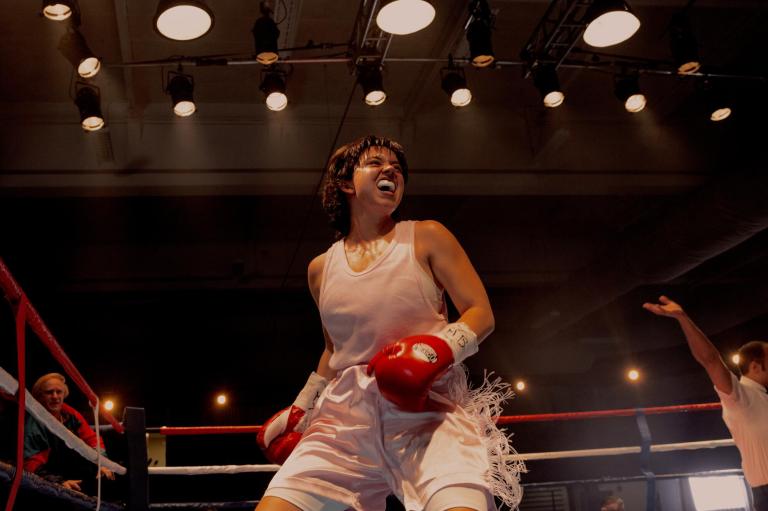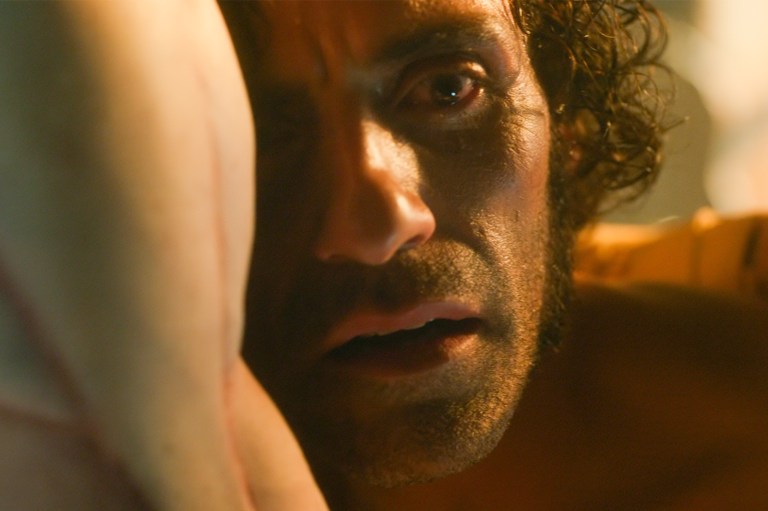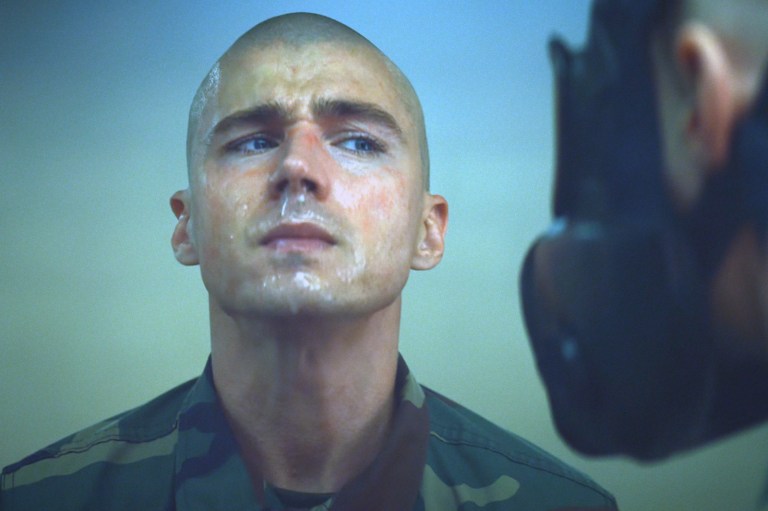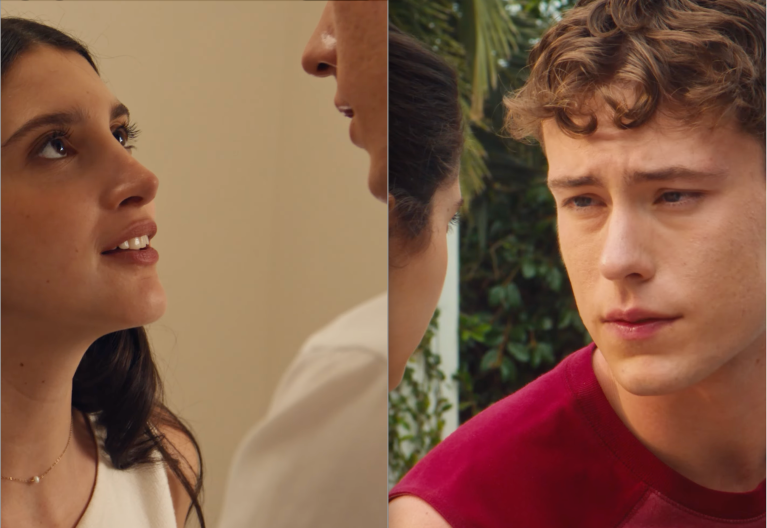
Why Do We Love Enemies-To-Lovers Rom Coms So Much?
The enemies-to-lovers trope is huge when it comes to romantic comedies, but why is that?
By ![]() Riley Grix
Riley Grix
If you’re looking for fireworks, here’s why.
Sydney Sweeney’s newest movie, Anyone But You, is a comedic tale about two people who probably were never meant to fall in love, but they did. Bea (Sweeney) has a romantic first meeting with Ben (Glen Powell) that ends in explosions, not fireworks, as the two spend years hating each other after that first date. The two find themselves in Australia at a destination wedding and agree to pretend to like, and even date, each other to keep the peace for the sake of the wedded couple. This forces Bea and Ben to truly get to know each other and eventually realize that they actually like one another.
Yes, the enemy-to-lovers trope is alive and well with Anyone But You! That got me thinking about all the other romantic comedy movies I’ve seen with that same trope. 10 Things I Hate About You, The Proposal, How To Lose A Guy In 10 Days, and Red, White & Royal Blue are a few that follow the same structure, and the romance hits every time! What is it about that enemies-to-lovers pipeline that movie viewers love, no matter how expected it is?
What Is the Enemies-To-Lovers Pipeline?
Enemies-to-lovers is very simple in movies and TV. Two characters are forced to be around each other, coexist, or work together, and they could not be more opposite. These opposing personality types, of course, cause friction. In true rom-com fashion, both characters are incredibly closed-minded to other ways of thinking or behaving, forcing them to hate each other. Let’s take The Proposal as an example.
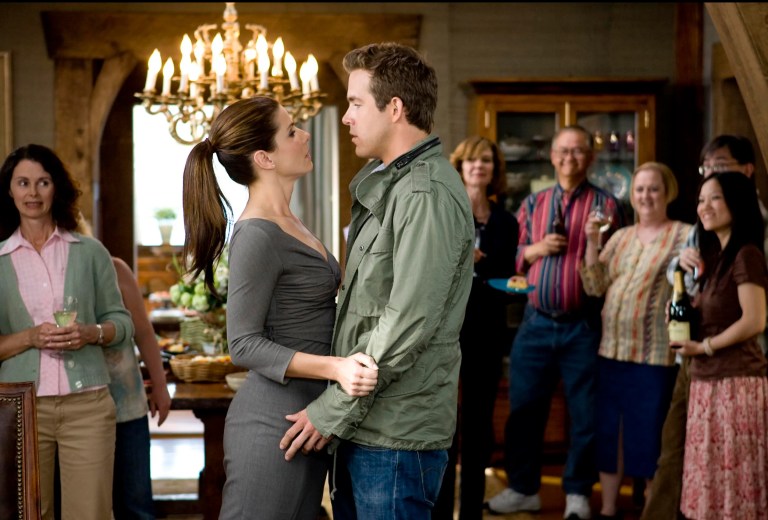
Margaret (Sandra Bullock) is an uptight workaholic with no time for dating, and her assistant, Andrew (Ryan Reynolds), is her family-centered, selfless assistant who thinks she’s a mean girl. The two are forced to pretend they are getting married so Margaret is not deported back to Canada. The two don’t understand each other and have very different morals and priorities, yet by the end, the two fall in love and want to get married for real. It is not a new or fresh trope, but it is one of the favorites amongst rom-com fans.
Why Is This A Fan Favorite?
To quote the great Dr. Frank-N-Furter, it’s the “antici…pation” that keeps the viewer engaged and intrigued to see how these two haters can learn to love one another. It’s the tension, darling, and the tension builds! Jokes aside, we know that tension and conflict typically foster growth in us. Many of us watching romantic comedies are searching for the warm fuzzy feeling of being in love and seeing love blossom, so seeing love and growth makes the movie relatable. This type of rom-com sells hope. Whether you’ve had your heart broken, are single and wanting to mingle, or are fully committed and happy, this trope is relatable in all senses. As a viewer, being able to witness someone’s growth and developing an open mind is what is so incredibly endearing.
There is also a bit of reality for relationships in the enemies-to-lovers pipeline. Many shows and movies will tell you that relationships are perfect and devoid of conflict or arguing and that the couple has to be perfect to be right for each other. Many of us in relationships know that is not true. You may like your partner just as much as you love them, but there will still be bickering or annoyance from spending a lot of time with one person. This doesn’t mean that relationships should be hard or require a lot of work, but that simply spending a lot of time with someone will come with some triggers. So, seeing a couple bicker and argue on screen and still choose each other and want to fight for one another is cathartic. It reinforces that tough times make for strong relationships.
Can Enemies-To-Lovers Work in Real Life?
Sure, you can totally have a relationship that starts out as a dramatic duel to the death every time you see the other person, but seeking out a relationship with that as the initiator is likely unhealthy. The thing about movies and TV is that they turn the drama up to 11, which isn’t something we will typically see in the real world. An explosive and confrontational meeting with someone in a coffee shop doesn’t mean the two of you are destined to fall in love. It probably just means you were in a bad mood, and so was the other person.
Humans are complicated and messy, and the enemies-to-lovers trope hammers that sentiment into our heads to the highest degree. As the viewers, we can distinguish that rom-coms aren’t real life, but the movie represents the big, messy feelings we sometimes don’t want to grow from to achieve the healthy relationships we all seek. So yes, this trope can work in real life, but sometimes, that underlying desire comes from a need to explore our messy feelings at a big age. Whatever your reason for tuning into this type of rom-com is fine, and we will all continue to love the tension and root for the two star-crossed lovers on screen.
If you love the this fiery trope, here are more suggestions for great enemies-to-lovers rom coms.
